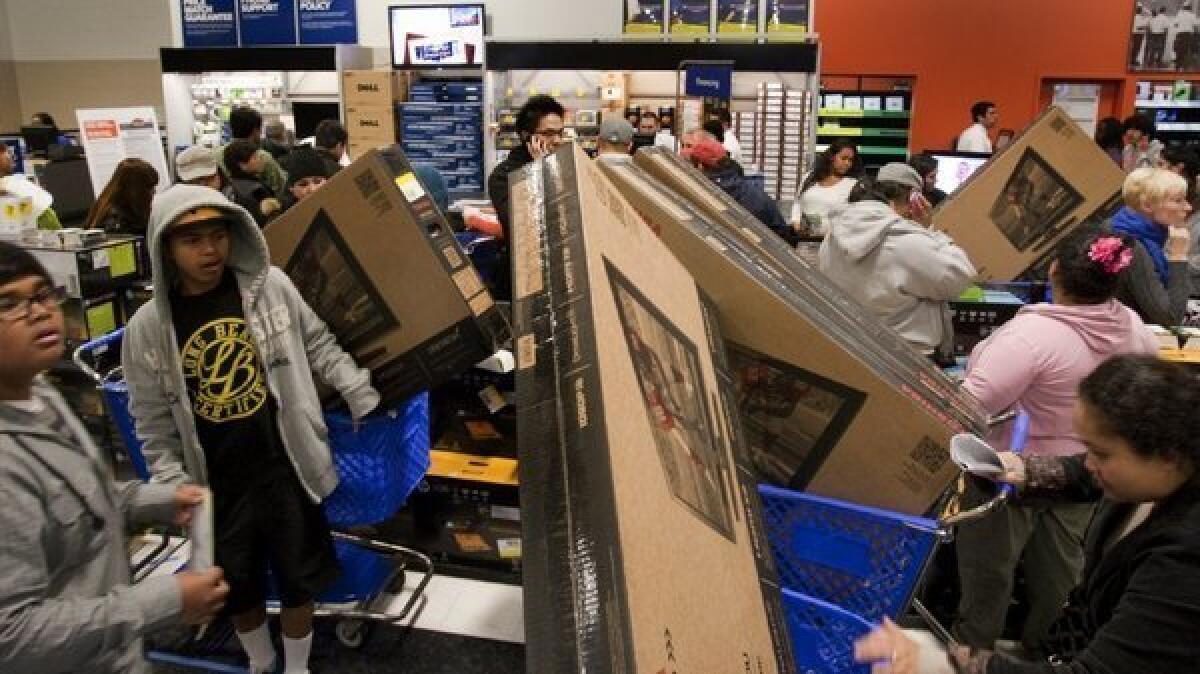White House issues new warning on ‘fiscal cliff’

WASHINGTON -- On the heels of record sales over the Black Friday weekend, the White House warned that automatic federal tax increases set for next year could hurt the rest of the holiday shopping season and would likely crimp consumer spending by about $200 billion in 2013.
The report released Monday projects that if Congress fails to act and middle-income taxes rise, consumer spending growth could be sliced by 1.7 percentage points and economic growth overall would probably be cut by 1.4 percentage points in 2013. Those are not small numbers given that consumer spending drives about two-thirds of U.S. economic activity and that the American economy has been growing by just a little more than 2% since the recovery began in mid-2009.
Quiz: How much do you know about the fiscal cliff?
The report from the White House Council of Economic Advisors looked only at the impending income tax hikes for taxpayers, including a higher alternative minimum tax. These tax increases are part of the so-called fiscal cliff -- a combination of mandated fiscal spending cuts and higher taxes that are slated to kick in next year and that on the whole would hit the economy by more than $500 billion and likely send the country back into recession into 2013.
The report is broadly consistent with forecasts by the Congressional Budget Office and leading private economists, and it comes after retailers amassed a record $59.1 billion in sales from Thanksgiving day through Sunday, up from $52.4 billion a year earlier, according to estimates from the National Retail Federation.
The encouraging start of the holiday shopping season reflects the recent strengthening of consumer confidence, which is at a five-year high. Consumers lately have been feeling better as housing prices have begun to rise and job growth has picked up slightly.
But the White House report warned that “the hard-earned rise in consumer confidence will be at risk if the middle-class tax cuts are not soon extended with a minimum of political drama.”
A loss of $200 billion in consumer spending is roughly the amount American families spent on all the new cars and trucks sold in the U.S. in the last year, the report said. And the pain would be felt by producers of goods and services across the board, with $36 billion less spent next year for housing and utilities, for example, and $32 billion less healthcare and $26 billion less for groceries and at restaurants.
ALSO:
Black Friday weekend sales hit record
Black Friday shoppers smash door at Urban Outfitters
Consumer confidence holds at five-year high, but barely
More to Read
Inside the business of entertainment
The Wide Shot brings you news, analysis and insights on everything from streaming wars to production — and what it all means for the future.
You may occasionally receive promotional content from the Los Angeles Times.











